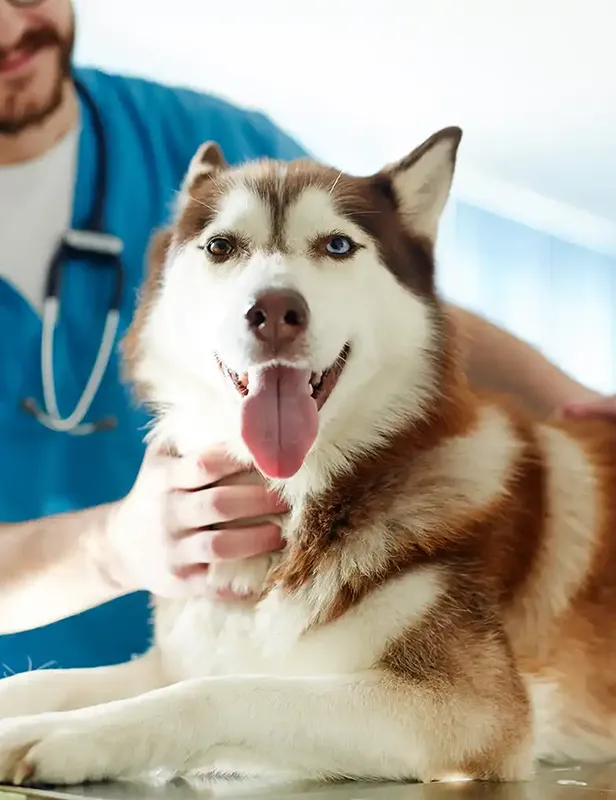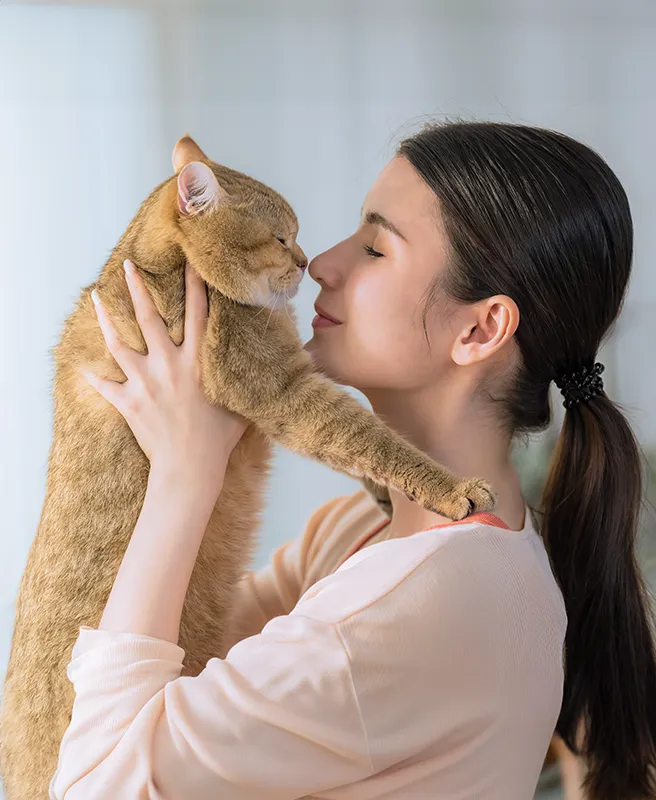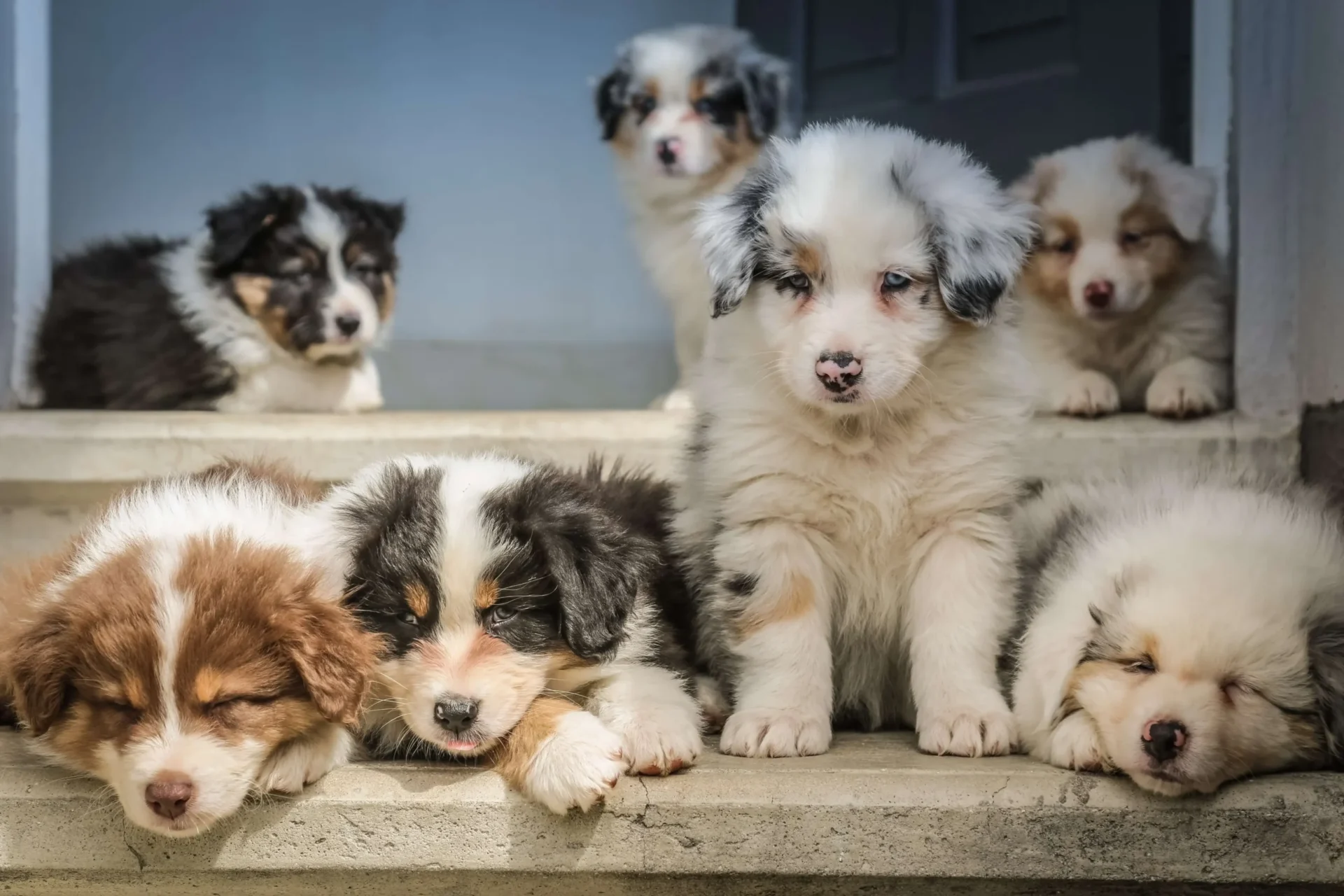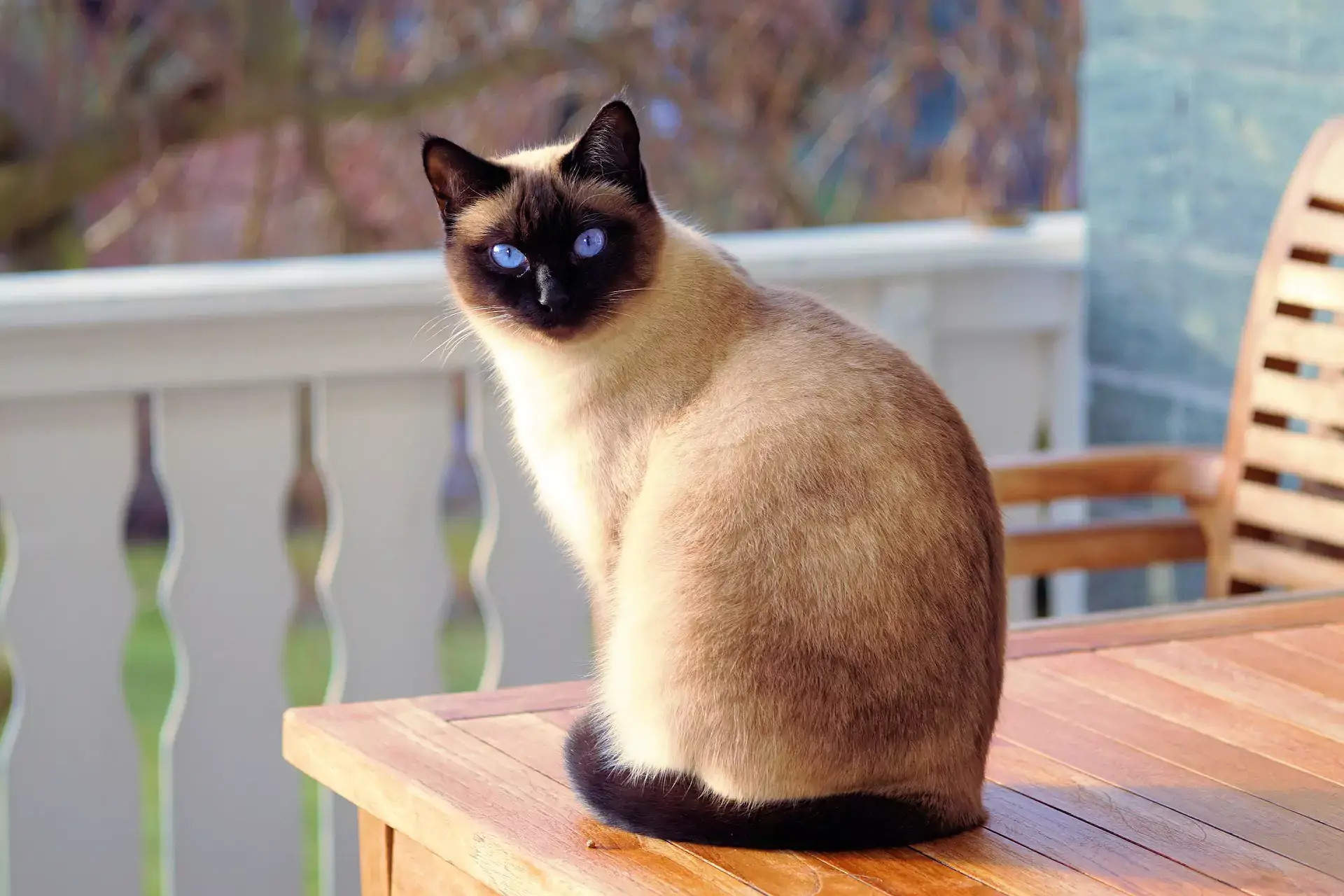Is it really Thanksgiving already? Pets are clearly at the top of the list of things for which we are grateful. They give us unconditional love, everlasting support and dedication, and offer comfort, companionship, and unending cuddling. They also make us giggle with their cute behaviors and fun antics. However, pet owners should be aware of a few risks associated with Turkey Day. Read on for some Thanksgiving pet safety tips from a local North East Maryland vet.
What Types of Meat Can Pets Consume?
Give your pet some of that scrumptious turkey! Meat, fish, and poultry are generally safe, as long as it has been well cooked. However, there are several caveats.
First and foremost? Never feed your pet meat on the bone. When heated, bones become extremely fragile and can break into sharp shards. These are choking hazards and can also cause severe internal damage if consumed.
Organ meats, such as liver, should be fed sparingly, as too much can lead to Vitamin A toxicity. Fatty foods, such as bacon and sausage, should also only be offered occasionally. You should also avoid giving pets anything that has been seasoned with fatty toppings, like cheese and butter; garlic; onion; or other dangerous foods.
Which Fruits And Veggies Are Safe For Pets?
The list of safe and harmful foods for dogs and cats is almost identical. Fido and Fluffy can eat several types of fruits and vegetables. In fact, produce is as good for dogs and cats as it is for humans!
As a general rule, remove any seeds, pips, or rinds. You’ll also want to keep an eye on the size, and the product may need to be chopped before sending it off.
Some foods, such as broccoli and cauliflower, should be served only on occasion. Consult your veterinarian for particular recommendations.
That said, here are some safe options.
- Apple
- Apricots
- Asparagus
- Bananas
- Beets
- Bell Pepper
- Blackberry
- Blueberries
- Broccoli
- Brussels sprouts
- Cabbage
- Cantaloupe
- Carrots
- Cauliflower
- Celery
- Corn
- Cucumber
- Green beans
- Cranberries
- Kale
- Lettuce
- Mango
- Peaches
- Pears
- Peas
- Pineapple
- Oranges
- Pumpkin
- Raspberry
- Spinach
- Squash
- Sweet potatoes
- Watermelon
- Zucchini
What Foods Are Unsafe for Pets?
Many items that are good for us are actually harmful to our pets. Dogs are slightly more vulnerable since they will eat almost anything, whereas cats are more selective. (Actually, Fluffy can be downright finicky, but that’s another topic.) Some kitties, however, will devour whatever they can get their little paws on.
As a general rule, you should never give your pet anything unless you have thoroughly researched its safety.
Here are a few things you should never give your pet:
Grapes, currants and raisins: These tart fruits are particularly harmful to dogs. Even eating one can cause renal failure in some pets! Though more investigation is needed, scientists have now identified the cause: tartaric acid.
Cherries: The pits of cherries contain arsenic, which is the source of the problem. Many cherries are also marinated in sweet sauces, which contain more sugar than our furry companions should consume. Err on the side of caution and avoid the cherries entirely.
Xylitol: Sometimes known as birch sugar, xylitol is a sugar substitute that is very dangerous to dogs. Unfortunately, it is added to a wide range of processed food, particularly baked goods. It is also sometimes added to peanut butter, which is otherwise safe for your pet to eat.
Onions And Garlic: The entire Allium family is poisonous to pets. This group comprises scallions, shallots, leeks, chives, as well as garlic and onion. The problem is that these diets contain organosulphoxides, toxins that damage your pet’s red blood cells, which can lead to anemia.
Nuts: Many nuts, particularly macadamia nuts can make your furry buddy sick. Consumption may cause weakness, tremors, vomiting, sadness, or hypothermia.
Corn on the Cob: While corn kernels are OK, the cob is not suitable for pets to eat. Consuming this can result in dangerous—and potentially fatal—intestinal obstructions.
Tomatoes: Tomatoes contain something called solanine, which is poisonous to puppies. The leaves are especially harmful. It is also worth noting that green tomatoes or tomato sections contain more concentration than ripe flesh.
Chocolate: Chocolate contains methylxanthine, which is toxic to pets. If consumed, it can cause vomiting, irregular heartbeat, and seizures. Unfortunately, even a single ounce per pound of your pet’s body weight can be lethal.
Alcohol, of course, is on the list. There are also things that, while not as harmful as those listed, are still unsafe. Many casseroles, for example, have high levels of fat, cream, and cheese, which are harmful to pets.
Consult your North East Maryland veterinarian for particular recommendations.
Make An Appointment At Our North East Maryland Animal Hospital
Happy Thanksgiving, everyone! We hope you and your families have a fantastic day. We are extremely appreciative to all of you. Please do not hesitate to contact us with any questions about your pet’s care. As your North East Maryland animal clinic, we are always willing to assist!







!Social Media Icons